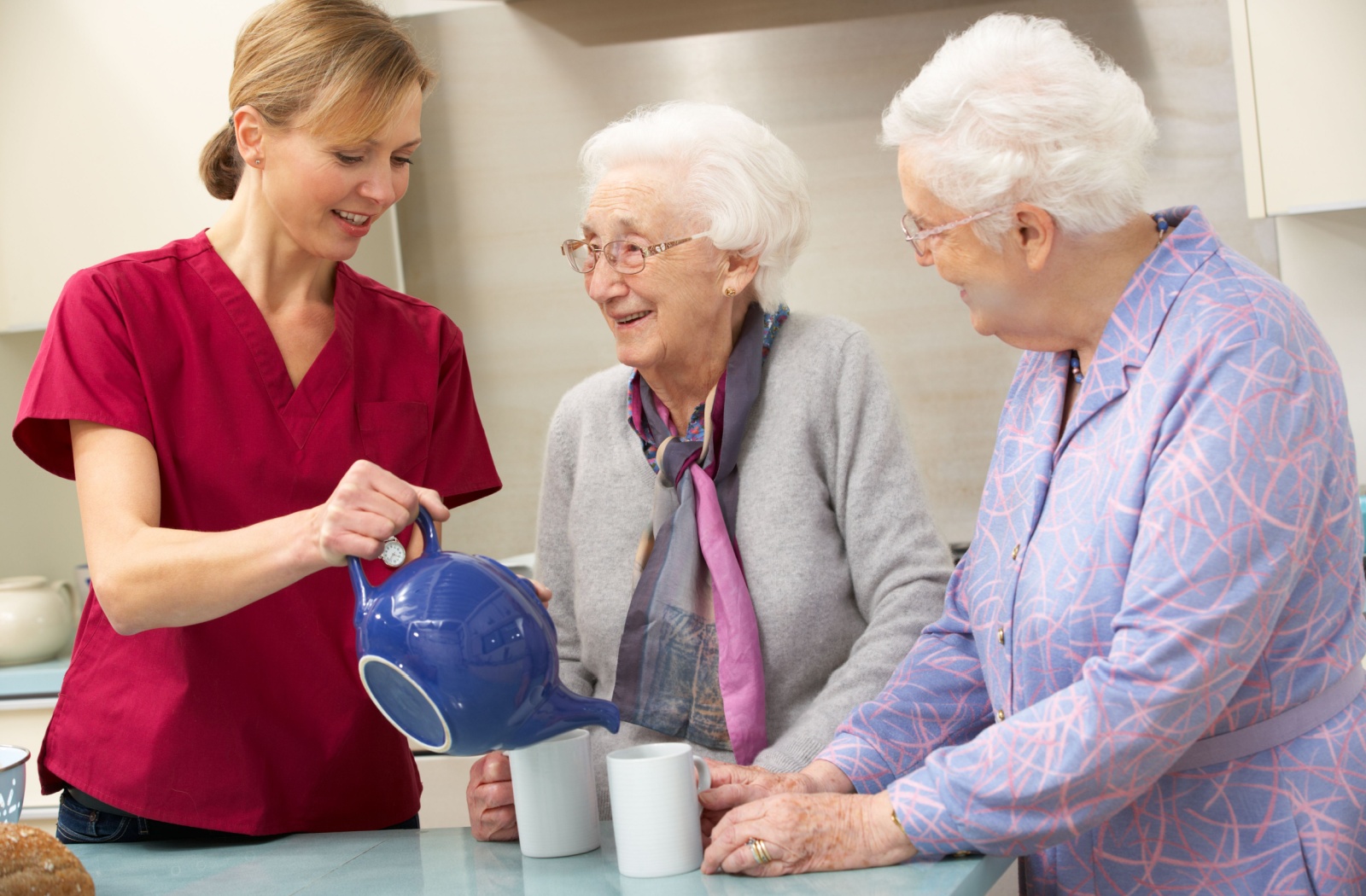Producing a Safe and Encouraging Atmosphere for Alzheimer's Care
The development of a safe and helpful atmosphere for people with Alzheimer's is vital in boosting their quality of life. This includes not only physical adaptations within the home, such as minimizing threats and integrating familiar aspects, yet additionally the application of organized regimens and significant activities that provide to their cognitive requirements. Additionally, comprehending the emotional and mental dimensions of treatment can considerably impact their complacency and link. Exploring these multifaceted approaches can disclose critical insights right into reliable caregiving methods that might change the day-to-day experiences of both clients and caretakers.
Comprehending Alzheimer's Requirements
Frequently, people with Alzheimer's illness exhibit a series of demands that need customized methods to care. As the condition progresses, cognitive decline materializes in numerous methods, influencing memory, reasoning, and also the ability to carry out daily tasks. Caretakers must acknowledge these developing demands to offer proper assistance and make certain a greater top quality of life for those affected.
One critical facet of comprehending Alzheimer's demands is identifying the significance of regular and familiarity. People usually find convenience in established patterns, which can lower stress and anxiety and confusion. Caregivers should make every effort to create structured daily schedules that include purposeful tasks straightened with the individual's capacities and passions.
In addition, reliable interaction is vital. People with Alzheimer's might struggle to reveal themselves or comprehend intricate language. Caretakers must employ easy, clear language, use non-verbal signs, and practice active listening to foster understanding and link.
Finally, psychological and social needs can not be neglected. Providing opportunities for social interaction and maintaining partnerships can dramatically boost emotional health. Caregivers should encourage engagement in area tasks or family members gatherings, promoting a feeling of belonging and objective. Recognizing these diverse requirements is vital for creating a supportive treatment environment.
Designing a Safe Home
Developing a risk-free home for individuals with Alzheimer's disease is vital to advertising and reducing dangers independence. The design of the living area need to focus on security while enabling personal comfort. Remove possible risks such as loosened rugs, sharp items, and clutter, which can lead to drops or accidents. Make certain that paths are clear and well-lit, as proper illumination decreases disorientation and boosts mobility.
Incorporating flexible attributes is also important. Mount grab bars in washrooms and near stairways, and take into consideration making use of non-slip mats in damp areas. Furthermore, utilizing contrasting shades for floors and walls can help in distinguishing areas, helping to mitigate complication.
Experience is necessary for individuals with Alzheimer's. Personalizing the setting with familiar things and photos can reinforce a feeling of belonging and security - Alzheimers Care Charlotte. It is also valuable to have a designated location for daily activities, such as analysis or crafting, which can supply framework to their day
Last but not least, executing a safe and secure outdoor room permits risk-free exploration while getting in touch with nature. By attentively making the home setting, caretakers can significantly enhance the quality of life for individuals dealing their website with Alzheimer's illness.
Enhancing Communication Skills

Non-verbal interaction, including faces, gestures, and touch, plays a critical duty in communicating compassion and understanding. Preserving eye get in touch with and a tranquil demeanor can boost the comfort degree of the person, promoting a feeling of safety.
Moreover, it is important to exercise energetic listening. This entails being completely existing, revealing patience, and permitting the person to reveal themselves without disturbance. Repetition may be needed; caregivers should be prepared to take another look at topics or concerns, as people with Alzheimer's might battle with memory recall.
Additionally, using aesthetic help or hints, such as photos or acquainted objects, can help with recognition and involvement. Ultimately, boosting communication abilities has to do with building count on and creating a setting where individuals feel heard, valued, and understood, thus enhancing their quality of life.
Urging Social Communication
Promoting purposeful social interactions can considerably improve the health of people with Alzheimer's illness. Engaging with others not only assists fight sensations of isolation but additionally stimulates cognitive feature and psychological health. Structured social activities, such as team arts, crafts and video games, or music therapy, develop opportunities for locals to get in touch with peers and caregivers, which can lead to enhanced mood and decreased anxiety.
Creating a welcoming setting that encourages socializing is necessary. This can be achieved pop over here by arranging public spaces that assist in interaction, such as cozy seating areas or task areas. In addition, including culturally relevant and familiar activities can spark memories and urge participation, allowing individuals with Alzheimer's to really feel more connected to their past experiences.
Moreover, caregivers must be educated to identify and promote social interaction among homeowners. By prioritizing social interaction, we can significantly improve the lives of those living with Alzheimer's, fostering company website a feeling of area and belonging.
Sustaining Caregiver Well-being

To sustain caretakers, organizations ought to use normal training and instructional resources to improve their understanding of Alzheimer's disease and caregiving techniques. Providing access to respite treatment solutions enables caregivers to take needed breaks, reducing anxiety and fatigue - Alzheimers Care Charlotte. In addition, promoting an area with assistance groups can facilitate psychological sharing and the exchange of useful suggestions among caretakers, creating a network of common support
Mental health resources, such as counseling solutions, can additionally be important in attending to the emotional toll caregiving can take. By prioritizing caretaker health, we develop a more sustainable caregiving atmosphere that not only benefits the caregivers themselves but additionally boosts the overall top quality of care received by individuals with Alzheimer's. Eventually, sustaining caregivers is an essential part in cultivating a reliable and caring treatment setup.
Verdict
To conclude, the development of a risk-free and helpful atmosphere for people with Alzheimer's is vital to improving their lifestyle. By prioritizing safety with thoughtful layout, fostering emotional health with familiar aspects, and advertising interaction through structured routines, caregivers can considerably affect the general experience of those impacted by this problem. In addition, sustaining caretaker well-being is important, as it ultimately contributes to a more reliable and compassionate care environment.
Rep may be essential; caregivers should be prepared to review questions or subjects, as people with Alzheimer's might battle with memory recall.
